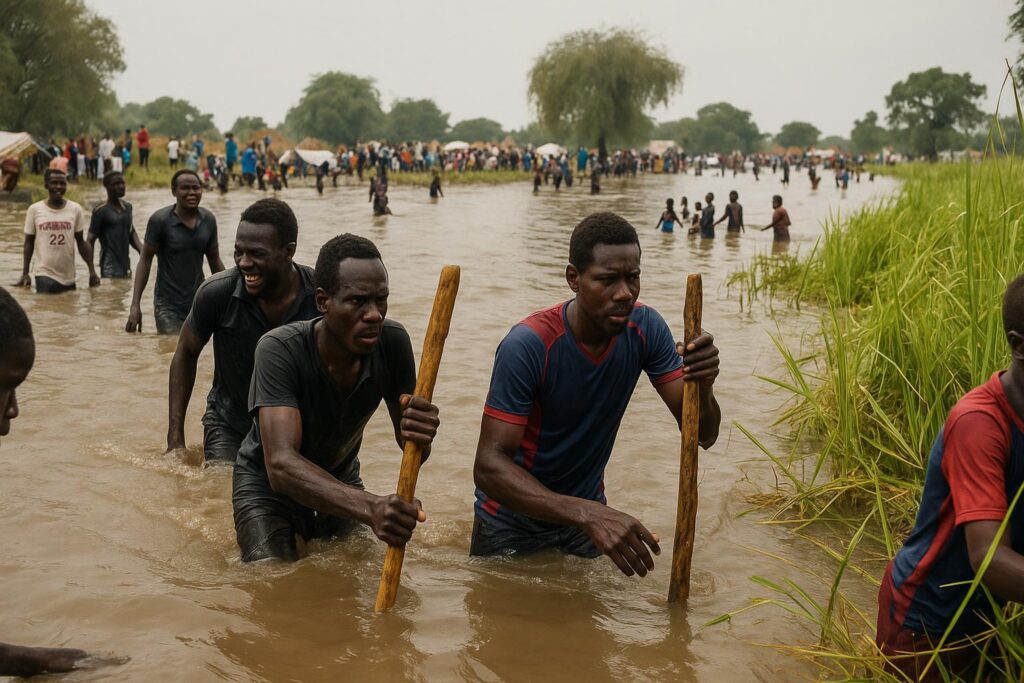Floodwaters Overtake Old Fangak
Weeks of torrential rain and an overflowing Nile have pushed water into Old Fangak County, Jonglei State, submerging homes, schools and clinics. Resident estimates suggest hundreds of families have left their villages since Sunday night.
The sudden surge followed the collapse of a World Food Programme dyke built in 2023, creating channels that now swirl through once-fertile farmland and around the county airstrip.
Voices from the High Ground
: “The water surrounded us overnight,” said county coordinator James Kuach Catim by phone from Bor. “Those still inside sit on the dike; the rest have gone to Paguier and Kuernyang.”
On a patch of elevated ground, resident Sarah Anyanya explained that her family now sleeps under trees after their house collapsed. She worries about mosquitoes, cold nights and empty cooking pots.
Farmer Hammed Osman echoed the concern, noting that floodwater drowned his crops weeks before harvest. “Our children will have nothing to eat unless help arrives,” he said.
Infrastructure Struggles and Climate Context
Local officials admit they lack excavators or fuel to reinforce the shattered earthen barrier. Youth volunteers pile sandbags, yet each tide of the Nile erodes the makeshift walls.
Seasonal inundation is common in low-lying Old Fangak, but scientists link the recent intensity to warmer regional temperatures and unpredictable rainfall patterns associated with climate change.
Coordinated Response Underway
Jonglei’s Relief and Rehabilitation Commission says it is mapping displaced households and sharing figures with UN agencies. At least 25,693 people across nine counties are affected after a fortnight of rain.
Food rations, plastic sheeting and water-purification tablets are en route by boat and helicopter, but swollen rivers complicate logistics, officials caution.
Looking Ahead for Recovery
Humanitarian agencies warn that stagnating water may breed malaria and water-borne diseases if drainage is not restored quickly. They call for both immediate supplies and longer-term investments in flood-resilient infrastructure.
For families perched on the dike, the priority is simple. “We need dry land, then seeds,” said Anyanya, glancing over the waterline. In Old Fangak, recovery begins the moment the Nile recedes.


